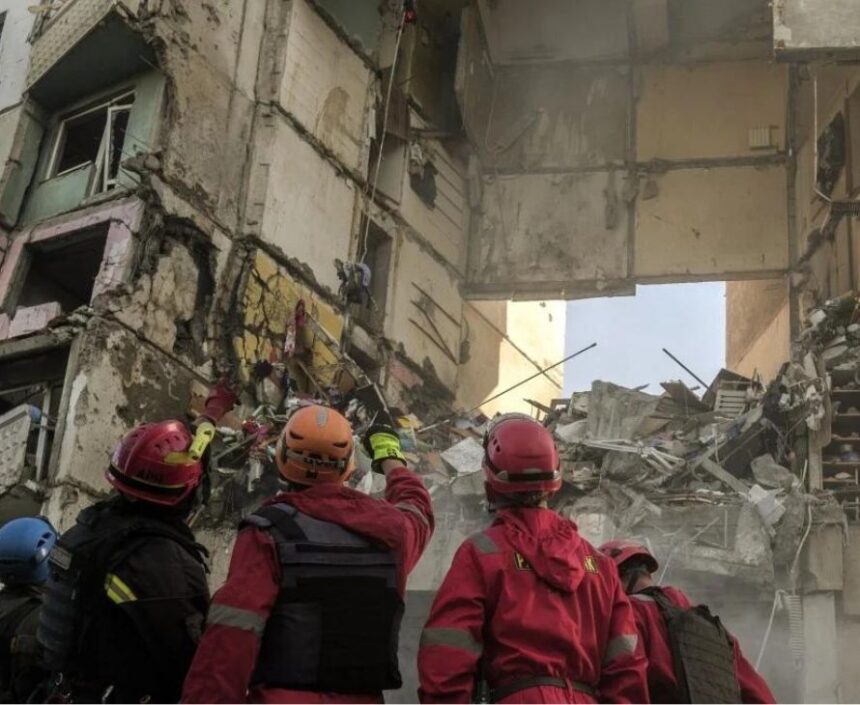Amid ongoing skepticism, the US and EU are unlikely to participate as Brasil lays the ‘groundwork for a peace conference’ to end the conflict.
China and Brasil are set to hold a key meeting this Friday on the sidelines of the United Nations General Assembly in New York, aiming to advance their ongoing proposal for mediation in the Russia-Ukraine conflict. This initiative, which has been a focus for some time, is attracting attention from at least 20 countries that have expressed interest in participating. Among them are Azerbaijan, Colombia, Egypt, Kenya, Mexico, Saudi Arabia, Thailand, the United Arab Emirates, and Vietnam.
Notably absent from the expected attendees are representatives from the United States and the European Union, and it’s still unclear who will be representing the participating countries—whether it will be heads of state, foreign ministers, or lower-ranking diplomats. This uncertainty raises questions about the level of engagement and the potential impact of the gathering.
In his address to the UN General Assembly on Tuesday, Brasilian President Luiz Inacio Lula da Silva highlighted the ongoing conflict, emphasizing that “it is now evident that neither side will be able to fully achieve its objectives through military means.” Lula’s words underscored the harsh reality of a conflict that has stirred memories of the Cold War’s most unsettling moments. He emphasized the importance of creating an environment that encourages direct dialogue, stating, “At this critical moment, creating conditions conducive to the resumption of a direct dialogue between the parties is essential.”
Lula referred to the six-point framework proposed by China and Brasil, a plan designed to initiate dialogue and end hostilities. This initiative is part of Brasilia’s larger effort to pave the way for a peace conference that could offer solutions to the ongoing conflict between Russia and Ukraine, an effort that dates back to Lula’s return to the presidency in 2022.
This mediation effort, while not new, has faced its share of challenges. Initial discussions about the proposal took place with Chinese diplomats ahead of Lula’s state visit to Beijing in 2023, but it was put on hold due to a lack of interest from China at that time. However, a renewed push came in May when Chinese Foreign Minister Wang Yi met with Celso Amorim, the Brasilian presidency’s special adviser on international affairs, in Beijing. During this meeting, the six-point plan, which included provisions for humanitarian aid, protection of civilians, prisoner exchanges, and a ceasefire, was endorsed.
In August, China’s special envoy for Eurasian affairs, Li Hui, met with Amorim in Brasilia and claimed that more than 110 countries supported the peace plan proposed by China and Brasil. Despite this apparent support, the initiative has faced significant resistance from key stakeholders in the conflict. Ukraine, the EU, and the US have rejected the plan, arguing that it could be seen as rewarding Russia and legitimizing its actions, including President Vladimir Putin’s claims over occupied territories.
Ukrainian President Volodymyr Zelensky openly criticized the China-Brasil plan, calling it “destructive.” He expressed his frustration, stating, “We were not asked anything. And Russia comes out and says that it supports the proposal of Brazil and China. What is the point of these theatrics?” Zelensky’s stance reflects deep skepticism about the intentions behind the plan and a sense of exclusion from a process that directly affects his country.
Although the Chinese foreign ministry has remained tight-lipped about the planned meeting in New York, they’ve reiterated their support for the Sino-Brasilian plan. In a statement on Tuesday, the ministry urged both sides in the conflict to “de-escalate the situation and create the conditions for the resumption of direct dialogue until a comprehensive ceasefire is achieved.” Echoing this sentiment, Liu Pengyu, spokesperson for the Chinese embassy in Washington, emphasized Beijing’s commitment to promoting peace and dialogue, stating that China is “willing to work with the international community to create conditions for a political solution to the Ukraine crisis through dialogue and negotiation’’.
While this initiative by China and Brasil might seem like a promising step towards peace, there are plenty of skeptics who doubt its potential to yield tangible results. Bruna Santos, from the Brasil Institute at the Wilson Centre in Washington, highlighted that Ukraine doesn’t seem to trust the countries expected to attend Friday’s meeting, which could be a major roadblock. Additionally, Ukraine appears to be pursuing its own strategy, which includes expanding its military actions beyond its borders—a move that shows a different approach than what the peace plan suggests.
Despite these challenges, the Sino-Brasilian initiative represents an effort to showcase influence on the international stage, particularly for Lula. As Santos noted, even if this initiative doesn’t directly change the course of the conflict, it highlights the kind of reforms that countries like Brasil are advocating for within international forums.
While the outcome of this meeting remains uncertain, the push by China and Brasil serves as a reminder that peace efforts are still on the table, even if the journey to achieving them is far from straightforward. Whether this gathering will mark a turning point or simply another step in a long process, it demonstrates the importance of dialogue and the ongoing search for solutions in a world yearning for peace.
ALSO READ: Western leaders called to attend talks on Ukraine













